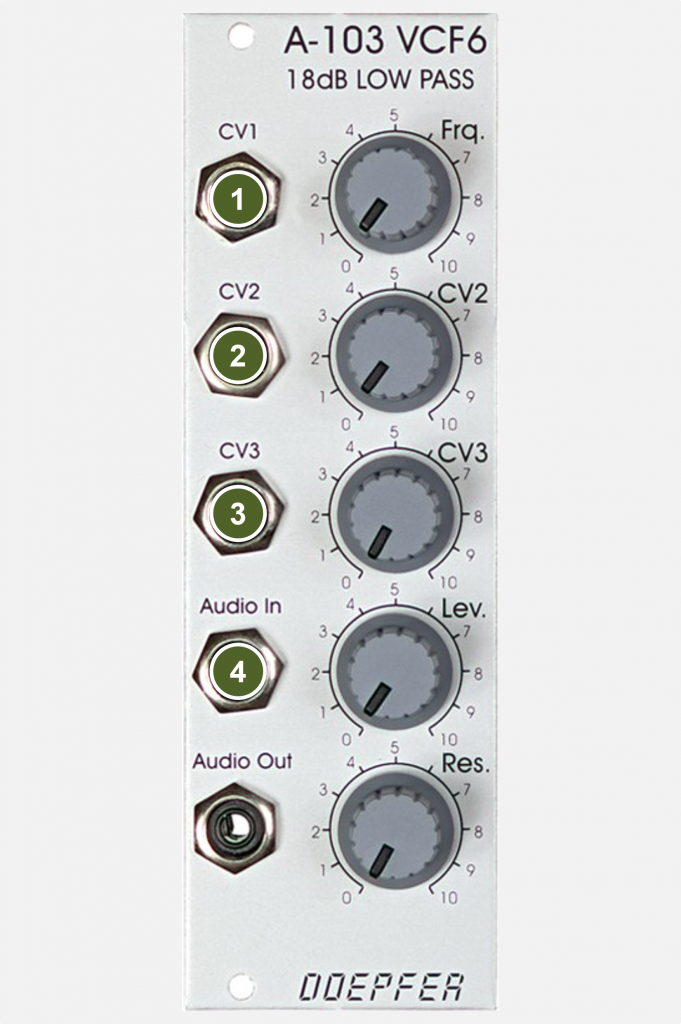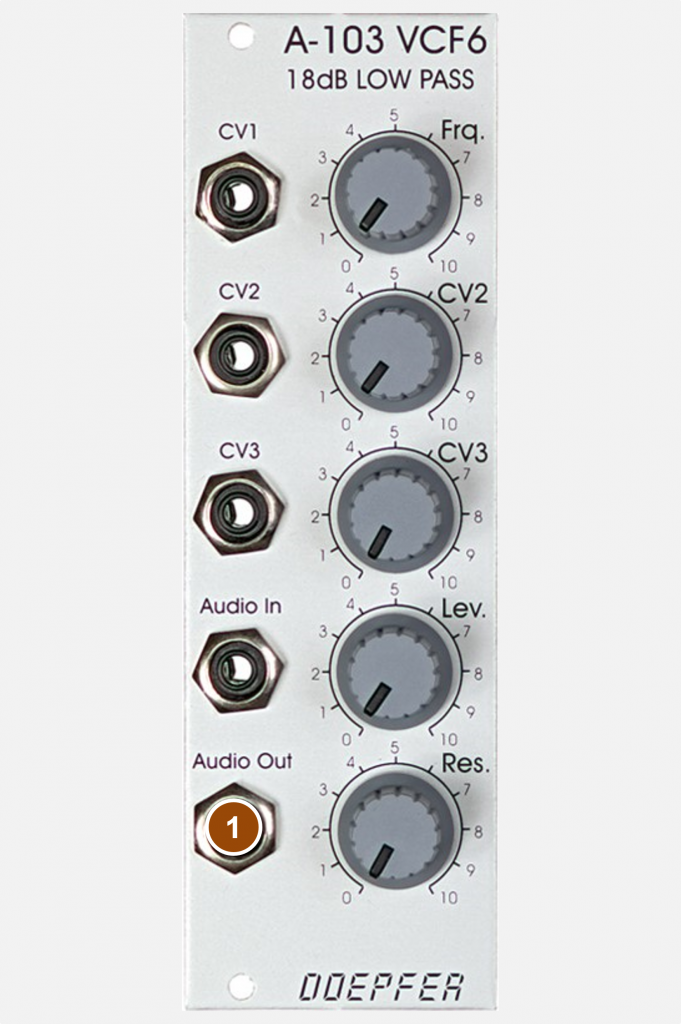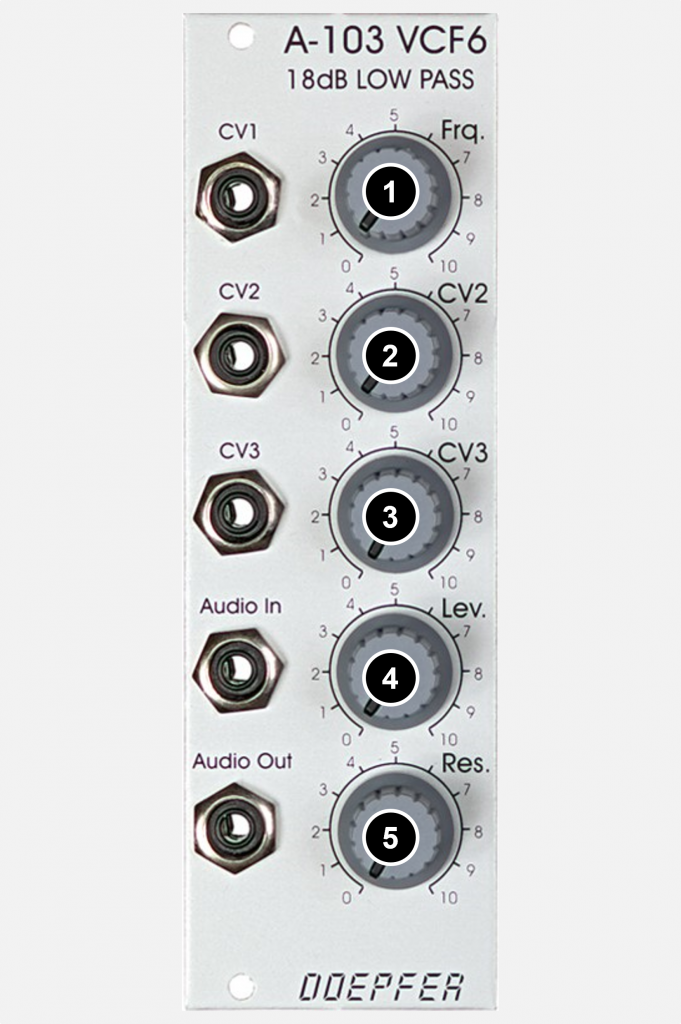The 18dB filter was created on the model of a well-known and popular small bass synthesizer: In principle, a transistor cascade is used here as in the 24 dB Moog filter, but only with three poles instead of four, and thus with a slightly lower edge steepness. The design may have come from a cost-related cutback in the early 1980s – today the small silver boxes have long been cult and are very expensive on the used market.
User interface
Inputs:

- CV1: Control voltage input for the cutoff-frequency (without attenuator).
- CV2: Control voltage input for the cutoff-frequency (with attenuator).
- CV3: Control voltage input for the cutoff-frequency (with attenuator).
- Audio In: Audio input.
Outputs:

- Audio Out: Output of the filter.
Controls:

- Frq.: Controller for the cutoff-frequency.
- CV2: Attenuator for the control voltage input “CV2”.
- CV3: Attenuator for the control voltage input “CV3”.
- Lev.: Attenuator for the audio input.
- Res.: Controller for the resonance (self-oscillation) of the filter. Attention: The self-oscillation already starts at a control position of approx. “3”.
Standard filter? Acid?
An A-103 can also be used as a standard filter without any problems, but the sound character is different than, for example, the A-102 or A-120 (due to the 18dB edge steepness of the A-103 and other technical differences).
Whether the module is an “official” replacement for the silver box is not the issue here. There is a tonal relationship, but differences in details are, as always, a matter of taste. Compared to other filters, the natural resonance is a bit restrained and the possible overdrive is also a bit more reserved than, for example, with the current A-120 filters.
Sound examples
-
A-103 / Filtersweep: input level and resonance
Our usual setup: The sawtooth outputs of three A-110-1 VCOs are mixed, one VCO is transposed down an octave. An A-142-1 VC decay controls the filter and an A-132-3 VCA. Pitch and trigger come from a simple arpeggiator.
During each audio recording, the A-103‘s filter cutoff frequency is manually rotated from 0 to 10 and back again. The CV2 control for the control by the A-142-1 envelope is set to about 2 (which already means that the filter no longer closes completely).
Input Level: 5, Resonance: 0. Input Level: 5, Resonance: 5. Input Level: 5, Resonance: 10. Input Level: 10, Resonance: 0. Input Level: 10, Resonance: 5. Input Level: 10, Resonance: 10.
Technical specifications
| Width | 8 HP |
| Depth | 55 mm |
| Power requirements | 30 mA (+12V) / -10 mA (-12V) |
